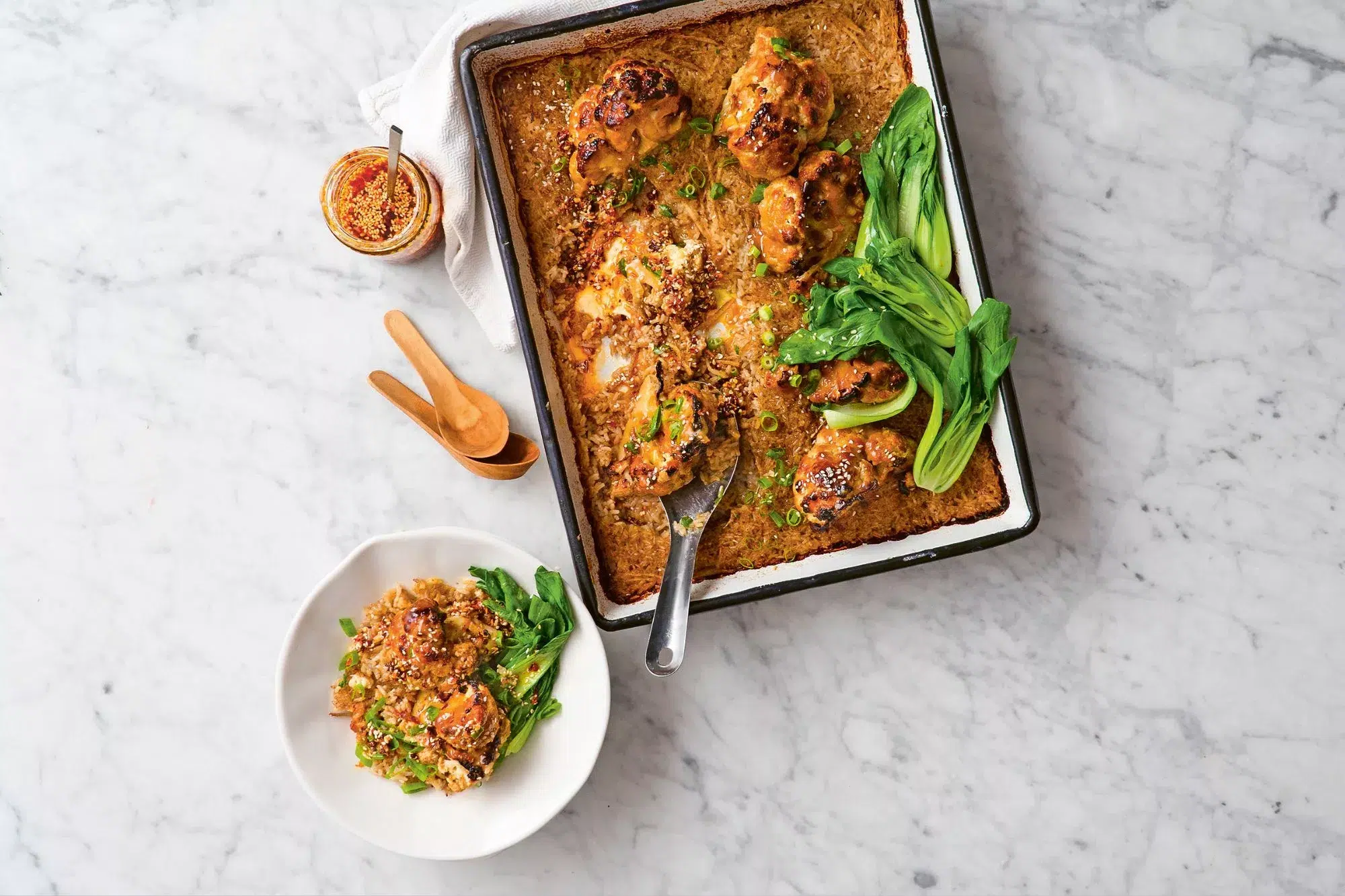A healthy pregnancy comes down to a healthy you. Clinician dietitian Kate Save shares her top tips.
By Kate Save
How you treat your body pre-pregnancy, during pregnancy, and after you’ve given birth can all have affects on your baby. So eating the right foods, knowing what to avoid, and what vitamins are essential and safe are all important factors in ensuring your pregnancy is as happy and healthy as possible.
You got this babe!
“HOW YOU TREAT YOUR BODY PRE-PREGNANCY, DURING PREGNANCY, AND AFTER YOU’VE GIVEN BIRTH CAN ALL HAVE AFFECTS ON YOUR BABY.”

1. Vitamins and Nutrients
When it comes to a healthy pregnancy, it starts with vitamins and nutrients that are essential for you and bub pre and post conception.
Folate:
Before falling pregnant and during pregnancy it is important to get rich sources of folate in your diet, this is because it can prevent birth defects known as neural tube defects such as spina bifida.
Dietary sources of folate: Green leafy vegetables, kiwi fruit, avocado, beetroot, seeds and nuts. It’s likely your doctor will also recommend you take a folate supplement at least 1 month before and 3 months after conception to guarantee you get enough during this vital period but speak to them first.
Iodine and selenium:
When trying to conceive it’s important to have your thyroid levels within target range. Selenium is a mineral that is also an antioxidant and has a key role in thyroid health, along with iodine. Iodine is used to make important hormones that help with metabolism and can affect your period regularity.
Dietary sources of selenium: Beef, brazil nuts, tuna, sardines, poultry, prawns
Dietary sources iodine: Seaweed, eggs, tuna, ionised salt
Choline:
An essential nutrient to support the development the baby’s brain and the development of the placenta.
Dietary sources of choline: Two eggs a day provide around 50% of your choline needs, however beef, soybeans, chicken, cod, mushrooms, potatoes, and quinoa, are all great sources of choline too.
Iron:
Iron is very important in pregnancy. Low iron levels can result in premature broth and low birth weights.
Dietary sources of iron: Red meat, legumes, fortified breads and cereals (whole grains), green leafy vegetables! Hint: Boost your absorption of iron by eating a vitamin C rich food at the same time, for example some broccoli and steak.
Increasing the dietary intake of iron alone is sometimes not sufficient enough to correct an iron deficiency and iron supplementation may be recommended by your healthcare professional. Similarly to dietary intake of iron, look out for supplements that contain Vitamin C to help absorption, but always consult a doctor first.
Omega-3 fatty acids:
Although avoiding excessive amounts of seafood is recommended during pregnancy, it’s important to ensure omega-3 is part of the pregnancy diet, which is mostly found in oily fish. Omega-3 is essential for your bub’s eyes, brain, and nerve development.
Dietary sources of omega-3: low mercury fish such as salmon, tuna or trout.
Plant-based sources of omega-3: nuts, seeds or vegetable oils.

2. Regular Exercise
There are many health benefits for women who exercise during pregnancy, including better weight control, maintenance of fitness levels, and improved mood. Regular exercise can also decrease the risk of complications such as pre-eclampsia and pregnancy-induced hypertension.
Most exercises are safe to perform during pregnancy, as long as you exercise with caution and do not overdo it. But before exercising when pregnant, do consult your doctor first.

3. Sleep
You need sleep during and outside of pregnancy simply to process all the changes your body goes through during the day.
Sleep improves your immune system and brain function, and it’s especially important during pregnancy because it regulates growth hormone levels. This dictates your size and shape, in addition to the development of your baby.
To get a good night’s sleep while you’re pregnant – you’d do well to eat and drink well, get exercise during the day and stay away from stimulating activities before bedtime.
4. Things to Avoid
Food-borne illness
During pregnancy your immune system is lowered therefore to have a healthy pregnancy, it is important to protect yourself and your baby from food-borne illness.
Foods that are at higher risk of containing harmful bacteria leading to food poisoning include uncooked meat and seafood (including sushi), deli meats, pre-made salads, soft cheeses, unpasteurized milk, soft serve ice-cream, undercooked eggs or pate and meat spreads.
Mercury
Avoid high intakes of mercury as it can increase the chances of birth defects and nervous system damage.
Although it is important to ensure adequate intake of omega-3 fatty acids during pregnancy, avoid large quantities of deep-sea fish.
The current recommendations are:
- Shark (flake), broadbill, marlin and swordfish should only be eaten once per fortnight with no other fish during that fortnight
- Orange roughy (sea perch) and catfish should be eaten no more than once per week. With no other fish that week
- Two to three serves per week of any other fish not mentioned above may be eaten safely. Such as tuna, sardines, salmon and rainbow trout
Toxins
It goes without saying that smoking and alcohol should be avoided at all times. It’s also good to limit your caffeine intake to 200 milligrams (mg) a day.
Sign up to our newsletter for weekly mama goodness delivered straight to your inbox, like the VIP that you are.






